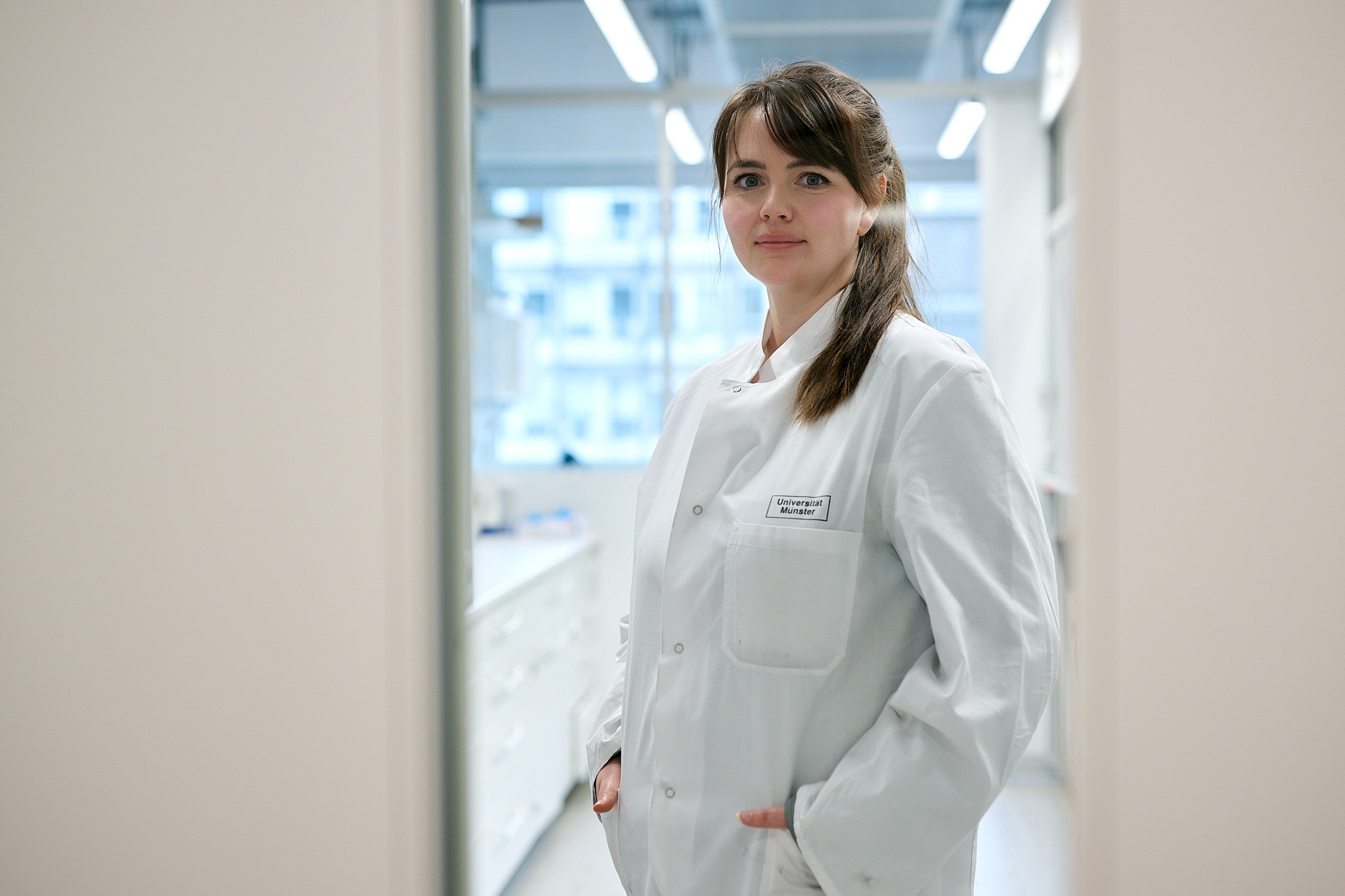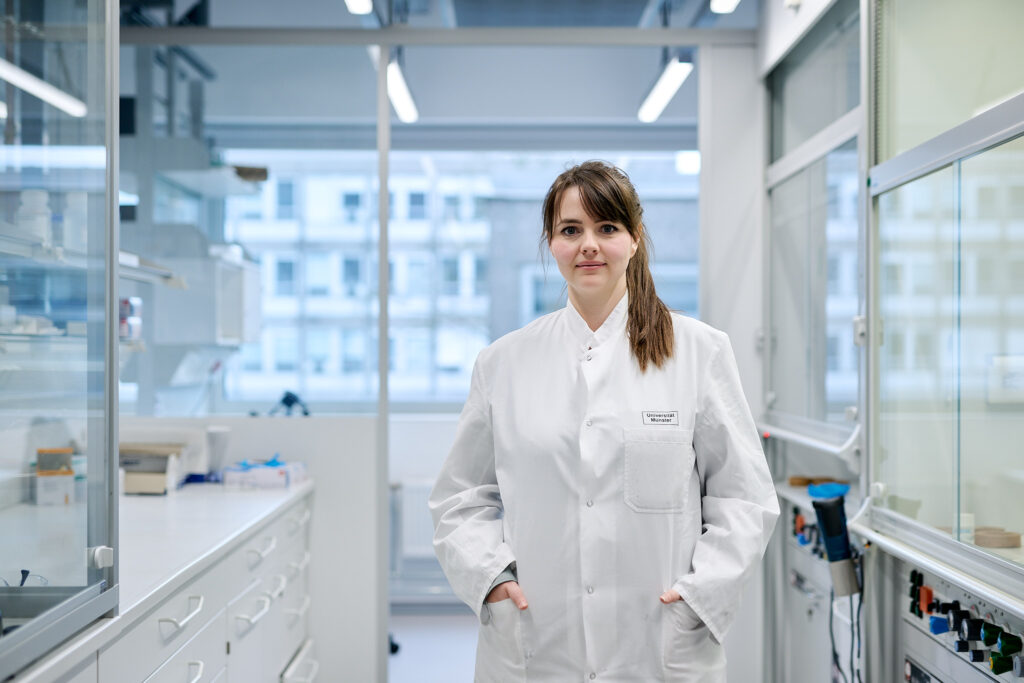
Remote Islands, Fluorinated Sugars, and Bold Discoveries: A Conversation with Dr Emma Campbell – Part II
In the series “33 questions” we introduce, in our WiRe Fellows who are currently working on a research project here at the University of Münster. Why 33? Well, if we think of the rush hour of life, it is kind of the age that lies in the middle. And we also like the number😉.
In today’s episode we are getting to know Dr Emma Campbell even better – building on last weeks insights into her life and scientific journey!
Follow this link to the first part of our interview with Emma.
22. Emma, how did you imagine your future as a child? What profession did you want to pursue?
From a very early age I knew I wanted to be a scientist. But when I was, I think, 6 years old I wanted to be a hairdresser. Weirdly enough, as a child/teenager I was convinced I would never live outside the UK, the thought of moving countries absolutely terrified me. But here I am in Germany over 25 years later!
23. What or who inspired you to become a chemist?
I had a science teacher when I was in my first two years of secondary school. I always knew I loved science but I wasn’t thinking about my career when I was in primary school. Him encouraging me and believing in me was the first time I thought to myself I could do this as a job and that I could make a difference in the world.
I remember he took us outside one day to visually see the difference between the speed of light and sound by having my friend go to the other side of the football pitch with some symbols and having them clash together so we could see the symbols touching but not immediately hearing the sound. I had never experienced doing an experiment like that before and we could literally see and hear the result, he made science tangible rather than just having us read books. He went above and beyond as a teacher and I can only hope I do the same for any of my students.
24. How did you imagine the life of a researcher when you were a high school student? Is it actually different?
I imagined I would be in a laboratory, with goggles and a labcoat and would be able to design a drug really easily. I thought that I would only ever be in a laboratory and that would be the extent of the job.
The labcoat and goggles are definitely the same. Designing active drugs, it turns out is a lot more challenging than I thought when I was 17 years old! I was also very surprised when I started my PhD how much of science is related to business, networking and going to conferences. It does make sense though, as your science only really makes an impact if people hear about it.

25. What do you like most about the “lifestyle” of a researcher?
I like the feeling that you are trying something new every day, and are trying to add a pebble to the top of the already existing mountain of scientific research.
26. If you could travel in time: in which epoch and at which discovery or event would you have liked to have been there?
Back to the early 1900s to be around as scientists unraveled the structure of DNA and from there managed to piece together a complex process of getting from DNA to proteins. The majority of which is still holds true today.
27. Do you think your career would have evolved differently if you were a man?
TI don’t think so. I have been fortunate enough to be surrounded by extremely supportive people who saw me as an equal both in my PhD and in my Post-doc.
28. If you were the research minister of Germany, what would you do to improve the situation of women in science?
One thing I have seen in my small circle is the lack of retention of female scientists at the post-doc level. There is obviously a multitude of reasons for this, but I do think the lack of stability in academia after doing a PhD contributes a bit to it. Contracts are short, you are more often than not required to move cities (even countries) for each new contract. All of that brings uncertainty, risk and a financial burden to move repeatedly in a short space of time.
It would take a massive overhaul of the system and a large contribution of money, but longer contracts or even more opportunities for permanent scientific staff in academia – below the professor level – I think would be an incredible step forward.
29. If you had a daughter, what would you advise her not to do?
To not doubt her abilities and her worth. Just because someone says you are wrong confidently doesn’t mean they are right.
30. What is the biggest challenge for you when it comes to balancing family and career? And how do you master this challenge?
IMy family are all back in Scotland which is challenging because of the distance. They also live on a remote island so it’s a full day of travel even after I get into the country. I miss a lot of birthdays and holidays.
We try to keep in touch over the phone and we chat over instant messaging most days. At the weekends we sometimes play boardgames (remotely) together which is a bit more fun than texting. We are trying to make trips to see each other more frequent but the travel is expensive so its averaging to maybe once a year at the moment.
31. How do you keep your head clear when you are stressed?
Not going to lie, I’m still trying to crack this one. Going out into fresh air helps, getting a bit of perspective. Going for runs is my new one and that’s fantastic because I don’t think about work at all when running. But during the actual work day that’s not too feasible. My friends and family are great for talking things through too.
32. Which of your traits bothers you the most in your daily work? And which help(s) you the most?
I find it quite difficult to switch off my brain, so it is quite challenging to get distance from work and get some perspective. I can also be very forgetful so I have to leave myself reminders everywhere, I have a designated bowl for my keys so I know where they are and I set timers on my phone so I get alerted for experiments finishing.
Weirdly enough because I am forgetful, I was forced to work out a system and that keeps me on track. I feel I am quite detail oriented so that helps with analyzing data also.
33. What is your favorite place to relax from research?
When I get back to my hometown in Scotland I love going to the beaches and just sitting watching and listening to the sea. Especially late at night when the moon is out and you can see all the stars. I don’t think there’s anywhere I feel calmer than by the sea. But while in Münster I find relaxation at home, cosy on the couch with my cat, watching a tv show with some good food.
34. What is your favorite place in Münster ?
I really love the Aasee on a Saturday/Sunday morning. It’s full of wildlife, the weather is usually quite nice (in the summer its warm, and in the winter the lake can freeze over and its beautiful in the snow). Its also almost exactly 5km round it so it’s a perfect place to go for a quiet morning run.
35. What is your favorite German word? Why?
I love that a lot of German words just “make sense” in comparison to English. For example, the word Handschuhe for Gloves. Shoes for your hands is just the perfect description of gloves.
